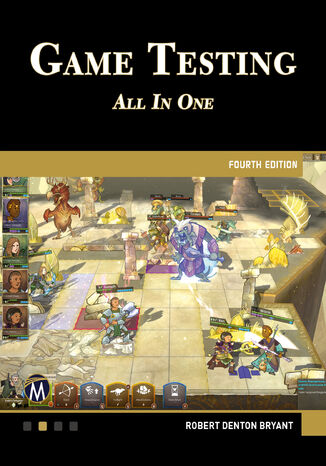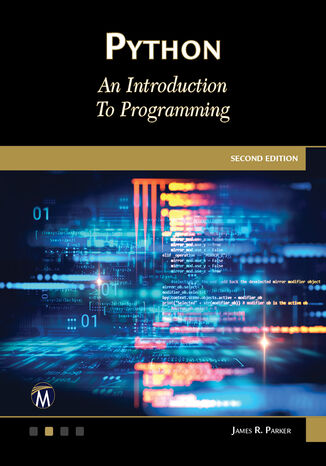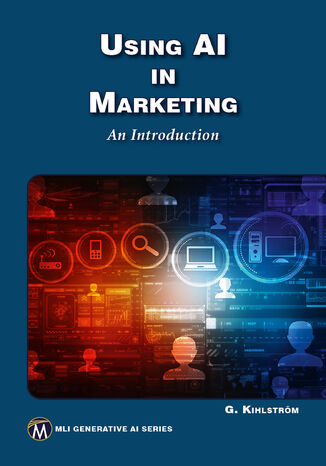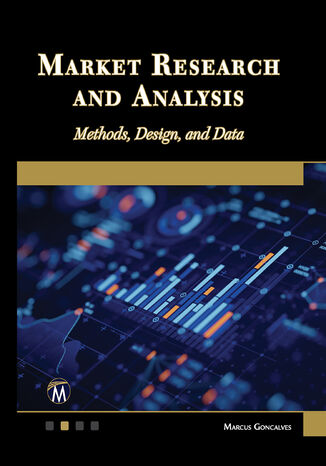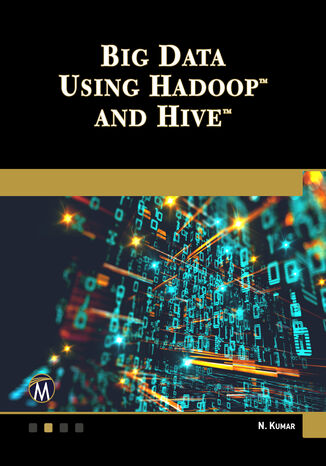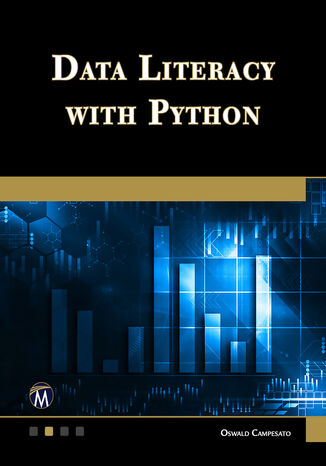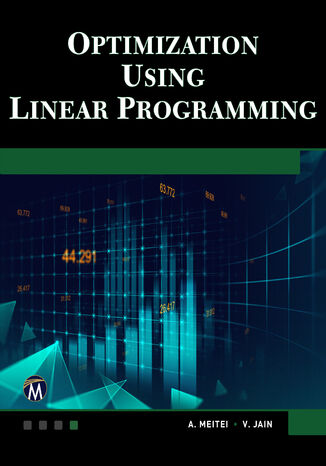Kategorien
-
- Bitcoin
- Geschäftsfrau
- Coaching
- Controlling
- E-Business
- Ökonomie
- Finanzen
- Börse und Investitionen
- Persönliche Kompetenzen
- Computer im Büro
- Kommunikation und Verhandlungen
- Kleines Unternehmen
- Marketing
- Motivation
- Multimedia-Training
- Immobilien
- Überzeugung und NLP
- Steuern
- Sozialpolitik
- Handbȕcher
- Präsentationen
- Führung
- Public Relation
- Berichte, Analysen
- Geheimnis
- Social Media
- Verkauf
- Start-up
- Ihre Karriere
- Management
- Projektmanagement
- Personal (HR)
-
- Architektura i wnętrza
- Sicherheit und Gesundheit am Arbeitsplatz
- Biznes i Ekonomia
- Haus und Garten
- E-Business
- Ekonomia i finanse
- Esoterik
- Finanzen
- Persönliche Finanzen
- Unternehmen
- Fotografie
- Informatik
- HR und Gehaltsabrechnung
- Frauen
- Computer, Excel
- Buchhaltung
- Kultur und Literatur
- Wissenschaftlich und akademisch
- Umweltschutz
- meinungsbildend
- Bildung
- Steuern
- Reisen
- Psychologie
- Religion
- Landwirtschaft
- Buch- und Pressemarkt
- Transport und Spedition
- Gesundheit und Schönheit
-
- Office-Programme
- Datenbank
- Bioinformatik
- IT Branche
- CAD/CAM
- Digital Lifestyle
- DTP
- Elektronik
- Digitale Fotografie
- Computergrafik
- Spiele
- Hacking
- Hardware
- IT w ekonomii
- Wissenschaftliche Pakete
- Schulbücher
- Computergrundlagen
- Programmierung
- Mobile-Programmierung
- Internet-Server
- Computernetzwerke
- Start-up
- Betriebssysteme
- Künstliche Inteligenz
- Technik für Kinder
- Webmaster
-
- Anthologien
- Ballade
- Biografien und Autobiografien
- Für Erwachsene
- Drama
- Tagebücher, Memoiren, Briefe
- Epos
- Essay
- Science Fiction
- Felietonys
- Fiktion
- Humor, Satire
- Andere
- Klassisch
- Krimi
- Sachbücher
- Belletristik
- Mity i legendy
- Nobelpreisträger
- Kurzgeschichten
- Gesellschaftlich
- Okultyzm i magia
- Erzählung
- Erinnerungen
- Reisen
- Gedicht
- Poesie
- Politik
- Populärwissenschaftlich
- Roman
- Historischer Roman
- Prosa
- Abenteuer
- Journalismus
- Reportage
- Romans i literatura obyczajowa
- Sensation
- Thriller, Horror
- Interviews und Erinnerungen
-
- Archäologie
- Bibliotekoznawstwo
- Filmwissenschaft
- Philologie
- Polnische Philologie
- Philosophie
- Finanse i bankowość
- Erdkunde
- Wirtschaft
- Handel. Weltwirtschaft
- Geschichte und Archäologie
- Kunst- und Architekturgeschichte
- Kulturwissenschaft
- Linguistik
- Literaturwissenschaft
- Logistik
- Mathematik
- Medizin
- Geisteswissenschaften
- Pädagogik
- Lehrmittel
- Populärwissenschaftlich
- Andere
- Psychologie
- Soziologie
- Theatrologie
- Teologie
- Theorien und Wirtschaftswissenschaften
- Transport i spedycja
- Sportunterricht
- Zarządzanie i marketing
-
- Sicherheit und Gesundheit am Arbeitsplatz
- Geschichte
- Verkehrsregeln. Führerschein
- Rechtswissenschaften
- Gesundheitswesen
- Allgemeines. Wissenskompendium
- akademische Bücher
- Andere
- Bau- und Wohnungsrecht
- Zivilrecht
- Finanzrecht
- Wirtschaftsrecht
- Wirtschafts- und Handelsrecht
- Strafrecht
- Strafrecht. Kriminelle Taten. Kriminologie
- Internationales Recht
- Internationales und ausländisches Recht
- Gesundheitsschutzgesetz
- Bildungsrecht
- Steuerrecht
- Arbeits- und Sozialversicherungsrecht
- Öffentliches, Verfassungs- und Verwaltungsrecht
- Familien- und Vormundschaftsrecht
- Agrarrecht
- Sozialrecht, Arbeitsrecht
- EU-Recht
- Industrie
- Agrar- und Umweltschutz
- Wörterbücher und Enzyklopädien
- Öffentliche Auftragsvergabe
- Management
-
- Afrika
- Alben
- Südamerika
- Mittel- und Nordamerika
- Australien, Neuseeland, Ozeanien
- Österreich
- Asien
- Balkan
- Naher Osten
- Bulgarien
- China
- Kroatien
- Tschechische Republik
- Dänemark
- Ägypten
- Estland
- Europa
- Frankreich
- Berge
- Griechenland
- Spanien
- Niederlande
- Island
- Litauen
- Lettland
- Mapy, Plany miast, Atlasy
- Miniführer
- Deutschland
- Norwegen
- Aktive Reisen
- Polen
- Portugal
- Andere
- Przewodniki po hotelach i restauracjach
- Russland
- Rumänien
- Slowakei
- Slowenien
- Schweiz
- Schweden
- Welt
- Türkei
- Ukraine
- Ungarn
- Großbritannien
- Italien
-
- Lebensphilosophien
- Kompetencje psychospołeczne
- zwischenmenschliche Kommunikation
- Mindfulness
- Allgemeines
- Überzeugung und NLP
- Akademische Psychologie
- Psychologie von Seele und Geist
- Arbeitspsychologie
- Relacje i związki
- Elternschafts- und Kinderpsychologie
- Problemlösung
- Intellektuelle Entwicklung
- Geheimnis
- Sexualität
- Verführung
- Aussehen ind Image
- Lebensphilosophien
-
- Bitcoin
- Geschäftsfrau
- Coaching
- Controlling
- E-Business
- Ökonomie
- Finanzen
- Börse und Investitionen
- Persönliche Kompetenzen
- Kommunikation und Verhandlungen
- Kleines Unternehmen
- Marketing
- Motivation
- Immobilien
- Überzeugung und NLP
- Steuern
- Sozialpolitik
- Handbȕcher
- Präsentationen
- Führung
- Public Relation
- Geheimnis
- Social Media
- Verkauf
- Start-up
- Ihre Karriere
- Management
- Projektmanagement
- Personal (HR)
-
- Anthologien
- Ballade
- Biografien und Autobiografien
- Für Erwachsene
- Drama
- Tagebücher, Memoiren, Briefe
- Epos
- Essay
- Science Fiction
- Felietonys
- Fiktion
- Humor, Satire
- Andere
- Klassisch
- Krimi
- Sachbücher
- Belletristik
- Mity i legendy
- Nobelpreisträger
- Kurzgeschichten
- Gesellschaftlich
- Okultyzm i magia
- Erzählung
- Erinnerungen
- Reisen
- Poesie
- Politik
- Populärwissenschaftlich
- Roman
- Historischer Roman
- Prosa
- Abenteuer
- Journalismus
- Reportage
- Romans i literatura obyczajowa
- Sensation
- Thriller, Horror
- Interviews und Erinnerungen
-
- Archäologie
- Philosophie
- Wirtschaft
- Handel. Weltwirtschaft
- Geschichte und Archäologie
- Kunst- und Architekturgeschichte
- Kulturwissenschaft
- Literaturwissenschaft
- Mathematik
- Medizin
- Geisteswissenschaften
- Pädagogik
- Lehrmittel
- Populärwissenschaftlich
- Andere
- Psychologie
- Soziologie
- Teologie
- Zarządzanie i marketing
-
- Lebensphilosophien
- zwischenmenschliche Kommunikation
- Mindfulness
- Allgemeines
- Überzeugung und NLP
- Akademische Psychologie
- Psychologie von Seele und Geist
- Arbeitspsychologie
- Relacje i związki
- Elternschafts- und Kinderpsychologie
- Problemlösung
- Intellektuelle Entwicklung
- Geheimnis
- Sexualität
- Verführung
- Aussehen ind Image
- Lebensphilosophien
Game Testing. Mastering the Art of Quality Assurance in Game Development
Mercury Learning and Information, Robert Denton Bryant
This updated fourth edition is your comprehensive guide to video game testing. Whether you're a student aspiring to join the industry or a professional honing your skills, this book covers essential aspects of game testing. It explains how testers fit into development and provides practical knowledge of tools, roles, responsibilities, and metrics for game quality.The book guides you through test design and QA methods using real game scenarios and interviews with veteran developers. You'll learn the basics of game testing, writing bug reports, and defect tracking. The chapters cover exploratory testing, gameplay testing, combinatorial testing, and regression testing.Each chapter includes questions and exercises, suitable for classroom or personal study. Companion files with templates and tutorials for creating combinatorial tables and test flow diagrams are included, forming the basis of a robust QA plan. This edition equips you with the skills to succeed in game testing and contribute effectively to any development team.
Python. An Introduction to Python Programming
Mercury Learning and Information, James R. Parker
This book introduces programming concepts using Python 3, designed for beginners and hobbyists with no prior programming experience. It covers loops, strings, functions, files, graphics, multimedia, algorithms, classes, and more. Many examples are based on video game development, making learning engaging and practical. The book uses a just-in-time presentation style, providing material when it's needed, and includes companion files with source code, exercises, projects, and figures.The course starts with an overview of modern computers and basic programming concepts. It progresses through topics like repetition, sequences, functions, file input/output, classes, graphics, data manipulation, and multimedia. The latter chapters focus on basic algorithms, programming for the sciences, writing good programs, parsing, and communicating using graphics and Pygame.By the end of the course, students will have a solid understanding of programming fundamentals, enhanced by practical applications in video game development. This approach not only makes learning enjoyable but also equips students with the skills needed for further studies in computer science and programming.
Using AI in Marketing. Harness AI technologies to transform marketing strategies and results
Mercury Learning and Information, Greg Kihlström
Artificial Intelligence is reshaping the marketing landscape. This book begins with a foundational overview of AI and its history, establishing the importance of AI in modern marketing practices. Readers will gain insights into the integration of AI with marketing fundamentals, paving the way for strategic advancements.Delving deeper, the book explores current applications of AI, from data analytics to campaign automation, and personalized customer experiences. With chapters dedicated to generative AI, prompt optimization, and team augmentation, the book provides actionable insights and case studies to guide readers through real-world usage.As the journey concludes, readers are equipped with an understanding of AI's transformative impact, ethical considerations, and strategies for adoption. This book ensures that marketers are ready to embrace AI, optimize their workflows, and make informed investment decisions for future growth.
Mercury Learning and Information, Paul Turner, Justine Wood
This book is designed for students, faculty, and professionals, describing the role of mathematics in economics and business. Starting with the basics of numbers and advancing into complex topics like hyperreal numbers and set theory, the book builds a strong foundation of mathematical concepts. Python code is used throughout to illustrate problems numerically, making the material accessible and practical.Readers will learn about linear simultaneous equations for market equilibrium analysis and the mechanics of matrices for solving larger systems. The book covers calculus, with applications in economics, including profit maximization and factor optimization, and introduces infinitesimal methods. Chapters on differential and difference equations reveal their importance in analyzing dynamic systems, all illuminated through practical examples and images from economics and business.The course begins with fundamental mathematical concepts, advancing to complex applications in economics and business. By integrating computational understanding with Python code, the book ensures learners can tackle real-world problems. This structured approach provides the tools needed for economic analysis and business decision-making, making it an invaluable resource for anyone in these fields.
Market Research and Analysis. Mastering Market Research: Advanced Methods, Design, and Data Analysis
Mercury Learning and Information, Marcus Goncalves
This book offers an in-depth exploration of market research and analysis, guiding readers through the entire process from defining research objectives to communicating results. Begin by understanding the purpose and ethics of market research, laying a strong groundwork for your studies. Progress to defining precise research objectives and exploring secondary research methods to gather existing information.Next, engage with primary research methods, focusing on both quantitative and qualitative approaches. Learn how to develop and distribute surveys, choose the right sampling techniques, and utilize tools for data mining and web scraping. Gain insights into focus groups and observation studies, understanding how these qualitative methods can provide depth to your research.Finally, master the art of data analysis and result communication. Explore descriptive statistics, hypothesis testing, and inferential statistics to make sense of your data. Learn to effectively present your findings to stakeholders, ensuring your research translates into actionable insights. By the end of the course, you will be well-equipped to conduct thorough market research and communicate your results effectively.
Big Data Using Hadoop and Hive. Master Big Data Solutions with Hadoop and Hive
Mercury Learning and Information, Nitin Kumar
This book is a guide for developers and engineers to use Hadoop and Hive for scalable big data applications. It covers reading, writing, and managing large datasets with Hive and provides a concise introduction to Apache Hadoop and Hive, detailing their collaboration to simplify development. Through clear examples, the book explains the logic, code, and configurations needed for building successful distributed applications.The course starts with an introduction to big data and Apache Hadoop fundamentals. It then covers the Hadoop Distributed Filesystem and how to get started with Hadoop. The journey continues with interfaces to access HDFS files, resource management with Yet Another Resource Negotiator, and MapReduce for data processing. The book also explores Hive architecture, storage types, and the Hive query language.Mastering these concepts is vital for creating scalable big data solutions. This book ensures a smooth transition from novice to proficient Hadoop and Hive user, providing practical skills and comprehensive knowledge. By the end, readers will be able to set up, configure, and optimize Hadoop, utilize Hive for data management, and effectively solve big data challenges.
Data Literacy With Python. A Comprehensive Guide to Understanding and Analyzing Data with Python
Mercury Learning and Information, Oswald Campesato
This book ushers readers into the world of data, emphasizing its importance in modern industries and how its management leads to insightful decision-making. Using Python 3, the book introduces foundational data tasks and progresses to advanced model training concepts. Detailed, step-by-step Python examples help readers master training models, starting with the kNN algorithm and moving to other classifiers with minimal code adjustments. Tools like Sweetviz, Skimpy, Matplotlib, and Seaborn are introduced for hands-on chart and graph rendering.The course begins with working with data, detecting outliers and anomalies, and cleaning datasets. It then introduces statistics and progresses to using Matplotlib and Seaborn for data visualization. Each chapter builds on the previous one, ensuring a comprehensive understanding of data management and analysis.These concepts are crucial for making data-driven decisions. This book transitions readers from basic data handling to advanced model training, blending theoretical knowledge with practical skills. Companion files with source code and data sets enhance the learning experience, making this book an invaluable resource for mastering data science with Python.
Optimization Using Linear Programming. A Practical Guide to Mastering Linear Programming Techniques
Mercury Learning and Information, A. J. Metei, Veena Jain
This book is designed for engineers, mathematicians, computer scientists, financial analysts, and anyone interested in using numerical linear algebra, matrix theory, and game theory to solve applied problems efficiently. It emphasizes solving linear programming problems with software like MS-Excel, Mathematica, MATLAB, WinQSB, and LINDO, while providing the necessary definitions and theorems for mastering theoretical aspects.The journey begins with basics of linear algebra using MS-Excel, followed by an introduction to linear programming problems and the graphical method. It then delves into the simplex method, duality, and sensitivity analysis. The course covers transportation, transshipment, assignment problems, and concludes with game theory. Each chapter builds on the previous one, ensuring a comprehensive understanding of the topics.Understanding these concepts is crucial for solving complex applied problems. This book transitions readers from basic to advanced techniques in numerical linear algebra and linear programming, combining theoretical knowledge with practical applications. It is an essential resource for mastering these topics and maximizing efficiency in problem-solving.

